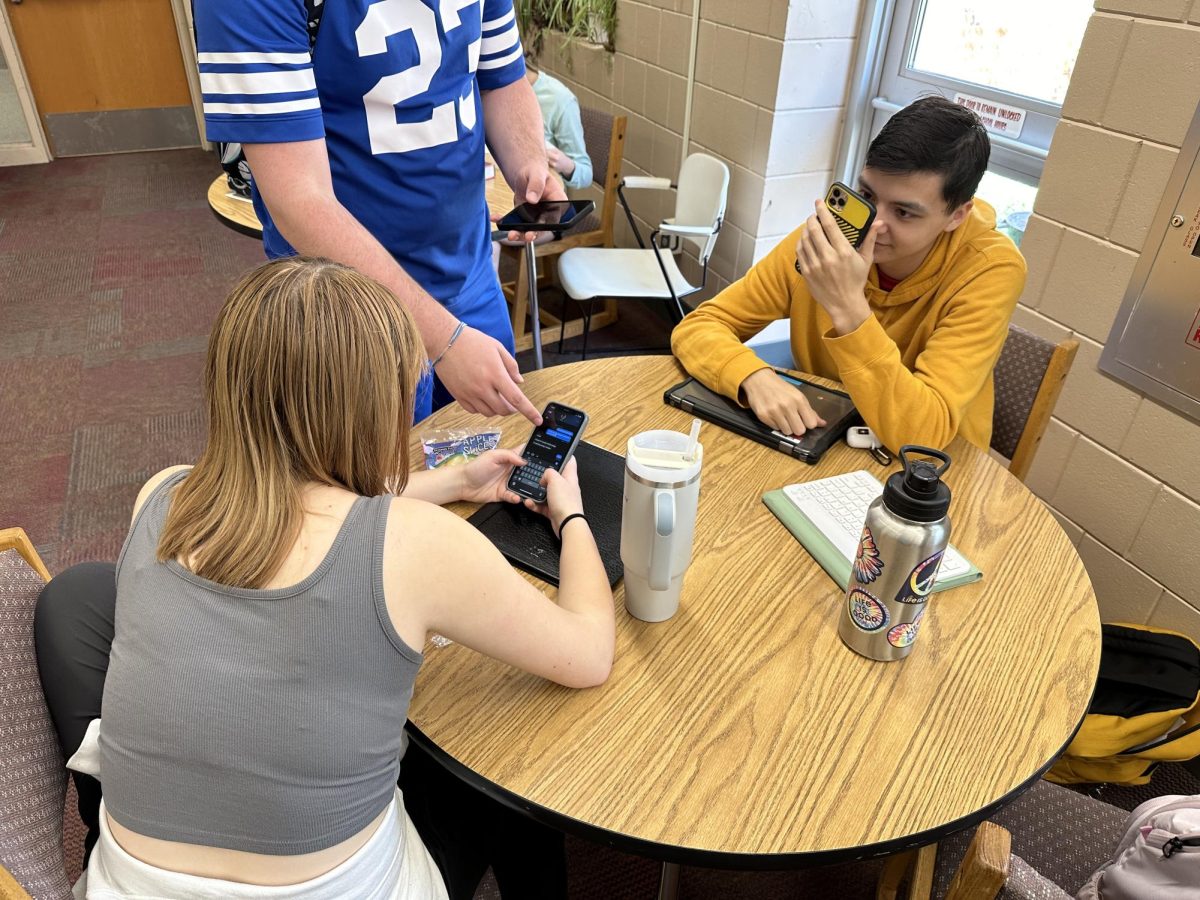In April, Minnesota state lawmakers proposed a bill imposing structured smartphone regulation with students in public institutions. While this bill is not an outright ban, it ensures all schools have a cell phone policy to keep students focused on learning. Many teachers and admin have also noticed a rise in cell phone distraction since COVID.
“Even when our students have phones in their pockets, and they feel it vibrate or they know that somebody’s trying to communicate with them, their attention goes there,” math teacher Peter Hamilton said.
While still being determined, the bill comes with two different implementation phases. First, the Minnesota School Board Association must provide a baseline for restricted smartphones of students and actions school districts can take. From that point, it is up to the school districts to implement a smartphone policy that would be most effective for their students. A vast majority of schools around the state already have policies in place. This new legislation is only an assurance that school districts have a plan in place. However, they will not determine what each school’s policy will be.
“You typically need bills introduced on both sides and they need to be pretty similar if not the same. So usually, you do the first reading it gets assigned to a committee,” counselor Sydney Piras said.
Bill HF-4581 is still at the negotiation level. When bills first get introduced, they need to get past the House, and then, such as the phone bill, they are assigned to a committee to further push the bill into law. There are two different bills regarding this issue, which are essentially identical. However, the second bill states that a school smartphone policy is simply a recommendation.
“School boards would need to develop a policy that involves talking with students, parents, community members, staff and principals, they would have to consult with them, collaborate with them,” Piras added.
Maple Grove and St. Anthony middle schools recently imposed complete phone bans during the 23-24 school year. The impact has shown the correlation between negative posts and social media activity to decrease by 30 percent. However, banning smartphones at a secondary level may be impossible. Students at a secondary level can use their phones as tools, whether making small calculations or organizing their day in a calendar. The challenge of these students having unrestricted access to their phones would be the easy opportunity to be distracted from social media apps. When explaining the impacts of smartphones in a classroom setting, Hamilton added that limiting students access to phones during the school day was “the best thing that we’ve done teaching wise.”
“The big impact is that it’s something that frees students up to learn,” Hamilton said.
Smartphone devices significantly impact teen’s mental health; in fact, around 80 percent of all adolescents own and consistently use these devices from a survey conducted by Common Sence Media. Social media and online content are at the heart of what makes smartphones as addicting as they are. As social media has gone up in popularity, teen suicides have also doubled. The content seen on social media sites dramatically affects body image and self-esteem shots, especially in girls and women. Before 2010, there were around half as many mental health issues and concerns as there are today. The COVID pandemic also had a significant effect on phone usage and mental health. During the pandemic, device and smartphone use majorly increased based on prior needs for pretty much everything, which caused the correlation between phone usage and mental health concerns to skyrocket.
“We saw skyrocketing rates happen with body image self-esteem, disordered eating, depression and anxiety,” Piras explained.
Social media companies such as TikTok and Meta develop different types of algorithms specifically designed to grab the user’s full attention. This, however, has been shown to start addiction among users. These giant media corporations can ultimately control what students see on their feed, or how they react to the world.
“It’s not the fault of the students themselves. I would suggest we’ve done it to them,” yearbook teacher Donald Pults said
A vast number of teachers have reported the constant distraction that the use of phones brings to the school setting. When students are on their phones instead of engaged with the course, they are less likely to succeed. It is difficult for teachers to teach when every student is on their phone and not paying attention. Classes with a stricter phone policy have proven to have greater engagement and community.
“I would like to see cell phones not even allowed in the classroom. I would like them to be safely stowed elsewhere,” Pults added.
The future of this bill is uncertain; however, most, if not all, school districts inevitably have some phone policy in place. Both bills are sitting in the committee and waiting for further input. If the bill passes, it will be up to each individual school district to enact a policy based on student needs.














